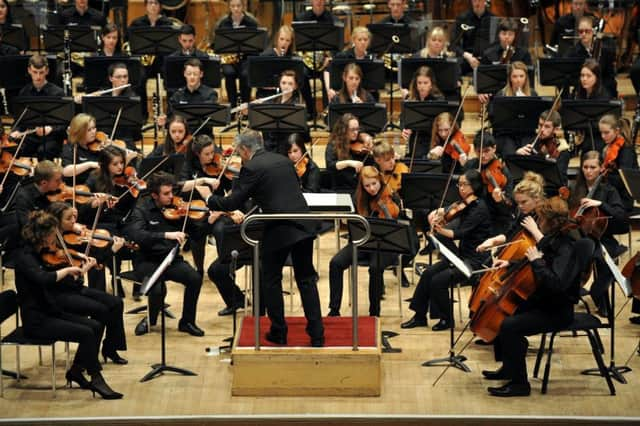Classical review: Prom 30 | Prom 31, London


Prom 30: Kolesnikov/NYOS/Volkov | Rating **** | Royal Albert Hall, London
Prom 31: Gerstein/BBCSSO/Dausgaard | Rating ***** | Royal Albert Hall, London
Advertisement
Hide AdAdvertisement
Hide AdGrime grew up in Banffshire, not far from the village which is the painter’s subject, and she has been fascinated by the way Eardley painted the same scenes from different angles throughout the year, as Monet did Chartres Cathedral: these pieces are her musical response. This one, entitled Snow, begins with a noisy woodwind tutti intercut with a plaintive clarinet melody, and it weaves into itself the bothy ballad The Scranky Black Farmer, which also underpinned the first piece.
Grime is quoted in the programme note as saying that her compositions develop so slowly that she can only manage two or three per year: “It’s very important to me that every note feels exactly right,” she says.
The precision with which the National Youth Orchestra of Scotland under Ilan Volkov’s direction honoured her intentions was impressive – indeed, this is a very impressive orchestra. Their performance of Stravinsky’s Firebird, with which they concluded their concert, was pretty well exemplary, with the flute, horn, oboe, and bassoon solos taken with absolute assurance. This performance brought out all the variegated beauty and tenderness of the score.
As they took their bow at the end, it was striking how young they are, yet – allowing for the fact that they don’t possess the patina which comes from experience – they are clearly able to give their elders in the BBC Scottish Symphony Orchestra a run for their money. Playing under the direction of Thomas Dausgaard later the same day, the BBC SSO dealt thrillingly with Stravinsky’s Rite of Spring, which had wonderful moments of mystery and terror.
This was an evening of other comparisons too – between Tchaikovsky’s first and second piano concertos, and between the soloists in each case. The boyish Pavel Kolesnikov and the older Kirill Gerstein are both superb pianists, though very different: Kolesnikov’s playing has extreme delicacy and precision, whereas Gerstein is a fully-formed warrior-poet.
In being allotted Tchaikovsky’s second piano concerto, Kolesnikov got a raw deal, because there’s no disguising the bombastic mediocrity of this work. But with his ultra-refined playing he made the best of it. Kirill Gerstein got to deliver the 1879 revised version of the first concerto, whose every bar reflects Tchaikovsky’s inspiration at white heat. Technically flawless and imbued with total authority, his performance was studded with moments of unexpected beauty. He didn’t hammer the keyboard, but every note in every piece of passage-work came across with vivid clarity: one seldom sees an audience erupt with such spontaneous delight, as they did here. Whereas Kolesnikov’s encore had been a lovely rendering of Tchaikovsky’s barcarolle June, Gerstein’s was the Eroica study by Liszt, both pianists playing to their strengths.